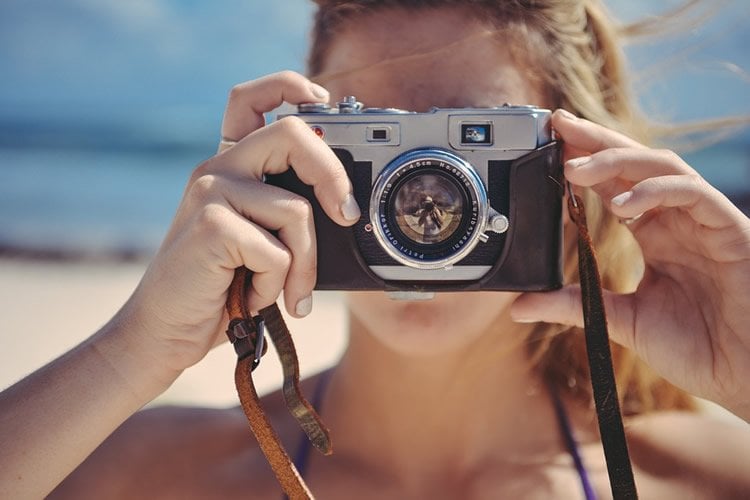Summary: Taking photos can positively affect how people enjoy experiences, a new study reports.
Source: APA.
While you might think photo-taking would detract from the enjoyment of everyday activities, research published by the American Psychological Association suggests that people who take photos of their experiences usually enjoy the events more than people who don’t.
“To the best of our knowledge, this research is the first extensive investigation examining how taking photos affects people’s enjoyment of their experiences,” wrote Kristin Diehl, PhD, of the University of Southern California; Gal Zauberman, PhD, of Yale University; and Alixandra Barasch, PhD, of the University of Pennsylvania. “We show that, relative to not taking photos, photography can heighten enjoyment of positive experiences by increasing engagement.”
In the study, published in the Journal of Personality and Social Psychology, Diehl and her colleagues outline a series of nine experiments involving over 2,000 participants in the field and the lab designed to examine the effect of taking photographs of an experience on people’s enjoyment of an activity.
In each experiment, individuals were asked to participate in an activity (e.g., taking a bus tour or eating in a food court) and were either instructed to take photos during the activity or not.
Afterward, participants completed a survey designed to measure not only their enjoyment but their engagement in the experience. In almost every case, people who took photographs reported higher levels of enjoyment.
While people might think that stopping to take photographs would detract from the whole experience and make it less pleasurable, participants who took photos reported being more engaged in the activity, according to the study.
“One critical factor that has been shown to affect enjoyment is the extent to which people are engaged with the experience,” the authors wrote. Photo-taking naturally draws people more into the experience, they found.
In one experiment, individuals were instructed to take a self-guided tour of a museum exhibit while wearing glasses that tracked their eye movements. The researchers found that those who took photos spent more time examining the artifacts in the exhibit than those who simply observed.
There were some conditions, though, where picture-taking did not have a positive effect, such as when the participant was already actively engaged in the experience. For example, in one experiment, individuals were asked either to participate in an arts and crafts project or to observe one. While taking photos increased the enjoyment of observers, it did not affect enjoyment of those actively taking part in the experience.
Another instance where photo-taking did not appear to increase enjoyment was when taking photos interfered with the experience itself, such as having to handle bulky and unwieldy camera equipment.
And photo-taking can make an unpleasant experience even worse, the study found. In one instance, participants went on a virtual safari and observed a pride of lions attacking a water buffalo, a sight most people found aversive. Photo-takers in that instance reported lower levels of enjoyment than those who saw the same encounter but did not take photos.

Diehl and her colleagues also discovered that this effect is not limited to the action of taking pictures. Participants in one experiment reported higher levels of enjoyment after just taking “mental” pictures as they were going through the experience.
While photo-taking can increase enjoyment in many circumstances, this effect requires active participation, according to the researchers. Cameras that record any moment of an experience without the individual’s active decision of what to capture are unlikely to have the same effect, they said.
Source: Jim Sliwa – APA
Image Source: This NeuroscienceNews.com image is in the public domain.
Original Research: Abstract for “How Taking Photos Increases Enjoyment of Experiences” by Diehl, Kristin; Zauberman, Gal; and Barasch, Alixandra in Journal of Personality and Social Psychology. Published online June 6 2016 doi:10.1037/pspa0000055
[cbtabs][cbtab title=”MLA”]APA. “Photographing Experiences Usually Increases Positive Feelings About Them.” NeuroscienceNews. NeuroscienceNews, 12 June 2016.
<https://neurosciencenews.com/photograph-experience-emotion-4443/>.[/cbtab][cbtab title=”APA”]APA. (2016, June 12). Photographing Experiences Usually Increases Positive Feelings About Them. NeuroscienceNews. Retrieved June 12, 2016 from https://neurosciencenews.com/photograph-experience-emotion-4443/[/cbtab][cbtab title=”Chicago”]APA. “Photographing Experiences Usually Increases Positive Feelings About Them.” https://neurosciencenews.com/photograph-experience-emotion-4443/ (accessed June 12, 2016).[/cbtab][/cbtabs]
Abstract
How Taking Photos Increases Enjoyment of Experiences
Experiences are vital to the lives and well-being of people; hence, understanding the factors that amplify or dampen enjoyment of experiences is important. One such factor is photo-taking, which has gone unexamined by prior research even as it has become ubiquitous. We identify engagement as a relevant process that influences whether photo-taking will increase or decrease enjoyment. Across 3 field and 6 lab experiments, we find that taking photos enhances enjoyment of positive experiences across a range of contexts and methodologies. This occurs when photo-taking increases engagement with the experience, which is less likely when the experience itself is already highly engaging, or when photo-taking interferes with the experience. As further evidence of an engagement-based process, we show that photo-taking directs greater visual attention to aspects of the experience one may want to photograph. Lastly, we also find that this greater engagement due to photo-taking results in worse evaluations of negative experiences.
“How Taking Photos Increases Enjoyment of Experiences” by Diehl, Kristin; Zauberman, Gal; and Barasch, Alixandra in Journal of Personality and Social Psychology. Published online June 6 2016 doi:10.1037/pspa0000055







